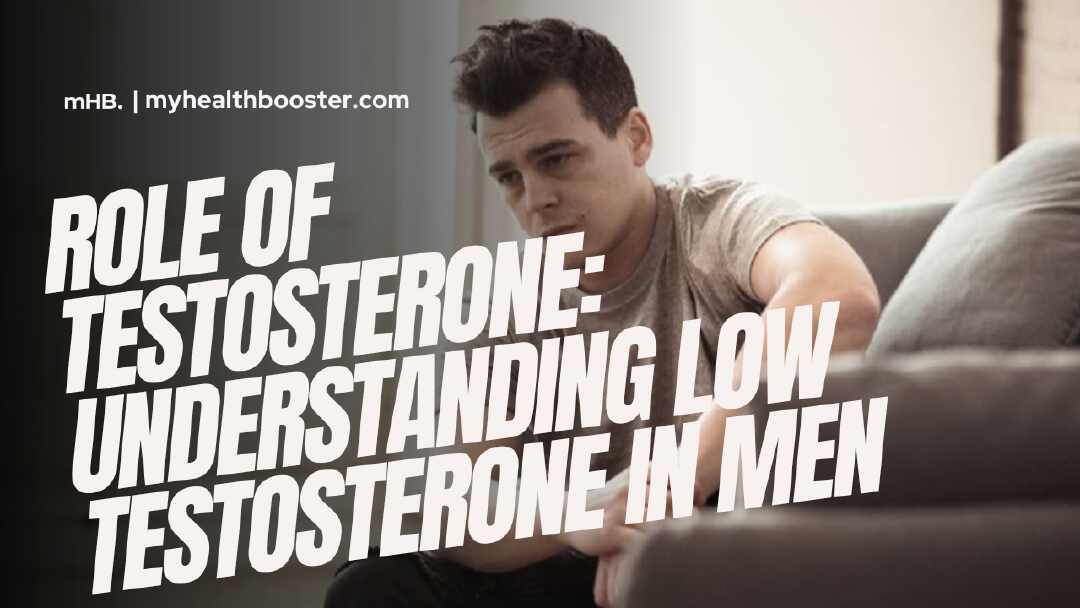Testosterone, often regarded as the “male hormone,” plays a crucial role in the overall health and vitality of men. It influences various aspects of the male body, from physical development to mood regulation. In this article, we’ll delve into the world of testosterone, exploring what it is, its normal levels, the causes, symptoms, and effects of low testosterone, and how to manage this condition.
Understanding Testosterone
Testosterone is a hormone primarily produced in men’s testes and, to a lesser extent, in women’s ovaries. In men, it plays a pivotal role in the development of male sexual characteristics during puberty, such as a deeper voice, facial and body hair, and muscle mass.
Normal Testosterone Levels
Normal testosterone levels in adult men typically range from 270 to 1070 ng/dL (nanograms per deciliter) of blood. These levels can vary slightly from one lab to another due to differences in testing equipment and protocols.
Causes of Low Testosterone
Low testosterone, medically known as hypogonadism, can result from various factors:
- Aging: Testosterone levels tend to naturally decrease with age, particularly after age 30.
- Chronic Illnesses: Certain medical conditions, such as obesity, diabetes, and chronic kidney or liver disease, can lower testosterone production.
- Medications: Some medications, including opioids and corticosteroids, can interfere with testosterone production.
- Testicular Injury or Disease: Physical injuries or infections affecting the testes can reduce testosterone production.
- Hormonal Disorders: Conditions like pituitary gland problems or hypothalamic disorders can disrupt the hormonal signals that stimulate testosterone production.
Symptoms of Low Testosterone
Low testosterone can manifest in various ways. Common symptoms include:
- Reduced Libido: A noticeable decrease in sexual desire and performance.
- Erectile Dysfunction: Difficulty achieving or maintaining an erection.
- Fatigue: Persistent tiredness and low energy levels.
- Depression and Mood Swings: Changes in mood, including irritability and increased feelings of sadness.
- Loss of Muscle Mass: Difficulty in building and maintaining muscle.
- Increased Body Fat: An increase in body fat, often accompanied by decreased muscle mass.
- Hair Loss: Thinning of body and facial hair.
- Cognitive Changes: Reduced mental sharpness and difficulty concentrating.
Effects of Low Testosterone
Low testosterone can have far-reaching effects on men’s health:
- Reduced Quality of Life: It can negatively impact overall well-being and quality of life.
- Osteoporosis: Low testosterone can weaken bones, leading to osteoporosis.
- Cardiovascular Health: It may increase the risk of heart disease and high blood pressure.
- Infertility: Reduced sperm production can result in infertility.
What to Do if You Suspect Low Testosterone
If you suspect you have low testosterone, it’s crucial to consult a healthcare professional. They can perform a blood test to measure your testosterone levels. Based on the results and a thorough assessment of your health, they can recommend appropriate treatments.
Managing Low Testosterone
Treatment options for low testosterone include:
- Hormone Replacement Therapy (HRT): This involves the administration of testosterone through injections, gels, patches, or implants.
- Lifestyle Changes: Maintaining a healthy weight, engaging in regular exercise, managing stress, and getting adequate sleep can help boost testosterone levels.
- Dietary Changes: A balanced diet rich in nutrients like zinc and vitamin D can support healthy testosterone levels.
High Testosterone
While low testosterone can be problematic, excessively high testosterone levels, known as hypergonadism, can also pose health risks. It may lead to aggression, mood swings, and an increased risk of heart disease. Managing high testosterone levels typically requires medical intervention.
Conclusion
Testosterone is a vital hormone for men, influencing various aspects of physical and emotional health. Understanding the causes, symptoms, and effects of low testosterone is essential for early detection and effective management. If you suspect low testosterone, don’t hesitate to seek guidance from a healthcare professional to optimize your health and well-being.
